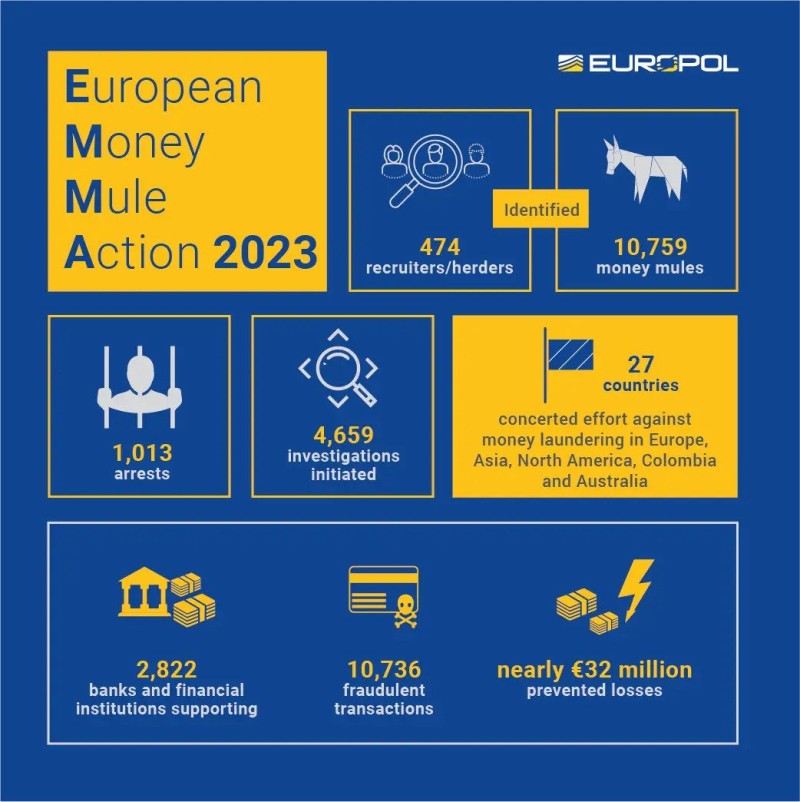During the ninth phase of the European Money Mule Action (EMMA 9) that was carried out in June, October, and November this year, national law enforcement agencies collaborated with Europol, Eurojust, Interpol, and several private business partners to combat money mules and their recruiters.
“As a coordinated action conducted across Europe and the globe, EMMA aims to fight money mule networks benefiting from different types of criminality, such as cyber-enabled fraud against financial institutions and their customers,” read Europol’s statement.
The joint investigation also encompassed online money transfer businesses, cryptocurrency exchanges, online travel providers, and ‘Know Your Customer’ (KYC) firms, as well as global computer technology corporations.
A total of 10,759 money mules, considered the main facilitators of money laundering, were uncovered internationally, along with 474 of their recruiters, according to Europol.
The operation, supported by more than 2,800 banks and other financial institutions, also revealed losses worth more than 100 million euros (US$108.17 million) but also prevented further losses of more than 32 million euros ($34.61 million). It also revealed 10,736 fraudulent transactions.
In addition to the tangible findings, the investigation uncovered several new patterns and developments in “the criminal landscape of international money laundering.”
According to the statement, one EU member state found that migrants from Ukraine seeking safety from violence are increasingly being targeted as unsuspecting partners in crime. “Exploiting their vulnerability and economic distress, criminals coerce them into inadvertently laundering money by forcing them to open bank accounts,” the statement said.
The investigation also revealed that the ingenuity of the criminals is growing, as bank impersonation crimes are on the rise, with thieves acting as bank staff targeting older persons and convincing them to create new accounts.
There is a worrisome trend involving the fraudulent use of artificial intelligence to generate phony identities, allowing users to circumvent KYC security mechanisms during online account setup, according to the statement.
It also stated that there is a new growing tactic in which crooks target younger people and provide them with online payment methods such as gift cards.
After such cards are activated for buying goods or electronic devices, the mules then “hand over the purchased goods to the criminals, who then offer them for sale on the most popular e-commerce marketplaces, receiving a percentage of the illegal proceeds either in cash or in goods.”
The list of various criminal schemes involving money mules, according to Europol, continues, as the EMMA action also revealed various “investment scams, compromised business emails, bogus holiday rental listings, middleman scams, phishing, messenger app fraud, help desk fraud, counterfeit bank cards and the use of crypto values transferred from virtual currencies exchanges to e-wallets.”



